Shadowy private tech companies are increasingly being commissioned to develop automated decision-making technologies that facilitate institutional violence while eliminating accountability.
The Walls Have Eyes, Surviving Migration in the Age of Surveillance, by Petra Molnar
The New Press 2024
ISBN 9781620978368
Sometime early in the 21st century, surveillance became normalized. As social media and cell phone technology prodded us into self-aggrandizing personal narratives, people shoved the idea that they were under 24-hour scrutiny to the back of their minds and narcissism became the Zeitgeist.
Epochal changes usually occur while most people look elsewhere. By the time the new era became an issue of public debate, guardrails were established and several fortunes made. So it goes with surveillance technology: invisible, dispersed but suddenly as intimate to each of us as the cell phone in our pockets, or the cameras and scanners on our streets, supermarkets and airports.
This sense of familiarity was dispelled in September when a string of exploding pagers, walkie-talkies and solar systems in Lebanon killed dozens and injured more than 3,000 people. Even though the suspected Israeli sabotage was likely to have involved a supply-chain interception rather than purely remote activation, the deeply disturbing plot twist to our era of convenience demonstrated that multiple types of networked devices can be turned lethal from afar. Rendering seemingly familiar objects into weapons was a reminder of the true cost of trading privacy for expediency, and acquiescing to live in a state of constant surveillance. The lesson was reinforced when Telegram messaging app and freedom-of-speech advocate Pavel Durov was arrested and consented to disclose to requesting authorities his users’ phone numbers and IP addresses.
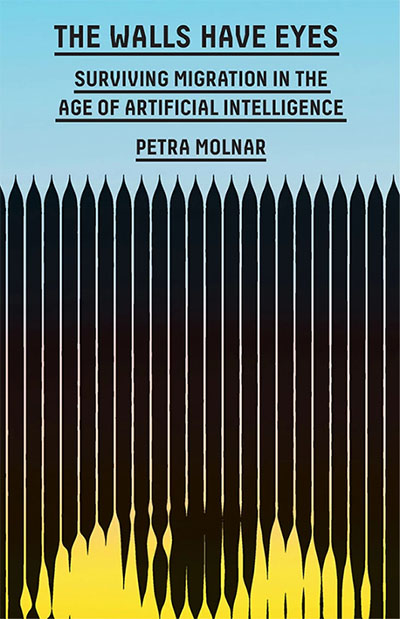
A timely new book tackles surveillance technology from a novel angle, situating Israel at the center of the militarized surveillance tech boom. The Walls Have Eyes argues that a host of state and transnational actors founded in the past two decades like the US government’s Homeland Security and the European Union’s Frontex are increasingly commissioning shadowy private tech companies to develop automated decision-making technologies that facilitate institutional violence while eliminating accountability. While these dangers are slowly becoming a subject of regulation, a thriving private sector populated by businesses like American Palantir and French Civipol have turned to feasting on the data of vulnerable populations while carrying out a brisk trade in illegal sales to authoritarian governments that have scandalously erupted in places like Libya and Greece.
Czech-Jordanian author Petra Molnar furnishes us with a dark travelogue from the frontlines of the ongoing global war on human movement, sourced from the experiences of the vulnerable refugee and migrant populations increasingly targeted by tech companies. This free-for-all in the sandbox of tech development was supposed to lead us to a techno-solutionist utopia but in fact deepened the spaces of unrestricted tracking and surveillance. As powerful blocs like the EU begin passing legislation restricting the past twenty years’ data-harvesting free-for-all, companies are doubling down on the legislative grey zones offered by informal populations.
Currently based between Athens and New York, Molnar spent several years following the 2015 refugee crisis on the Asia-facing Aegean islands, observing how states prioritize technology to limit movement instead of funding solutions to combat racism at the border, or improve fairness in asylum proceedings. She runs the Migration and Technology Monitor, an archive and platform facilitating the recounting by people on the move of their stories, including of encounters with border surveillance. One memorable vignette has Molnar braving numerous police checkpoints during the Covid lockdowns to rescue a refugee child stranded on the river between Greece and Turkey.
“These stories and perspectives had to be the heart of the book,” said Molnar in an interview with TMR, “to help humanize the issues for policymakers and a public which may not pick up a research report or theoretical treatise, but may identify with a real narrative that brings the issues to life.”
Molnar’s journey through the world’s now over-surveilled border hinterlands seeks to demonstrate how “people in the so-called Global South are often the subjects of powerful data extraction experiments that justify tracking entire swaths of the world to serve the geopolitical interests of the Global North.” She extends the problem by pointing out that surveillance tech is designed on the basis of the global elite’s priorities, and that “making people on the African continent trackable is one of the ways in which the EU and the US are able to maintain a form of neo-colonial control over global migration management.”
The book unspools through an outlandish assortment of securitized borderlands, including the fortified corridor between Poland and Belarus, the Greek islands next to Turkey’s Asian landmass, the ghost town of Hebron in the occupied West Bank, the US-Mexican border, and the insulated and de-territorialized arenas of defence expos. At the World Border Security Congress, Molnar observes private companies hawking drones, robo-dogs and radars to governments even as the badge announcing her as an academic earns her summary brush-offs.
“When I first started working on trying to expose the impacts of border technologies in 2018, I felt like a fish out of water,” Molnar told TMR. “However, I also quickly realized that what I was ultimately doing was not about technology per se, but rather about trying to understand power — technology is a useful lens through which to look at power differentials, especially in migration and at the border.”
In Israel, Molnar stumbles upon companies like Elbit Systems, Israel’s systemic weapons manufacturer, AnyVision, a startup that employs AI and facial recognition to turn “passive cameras into proactive security systems” and Elimec, a company whose Blue Wolf app gamifies the unrestricted photographing of the Palestinian population to populate the Israeli army’s facial recognition database, allowing Israeli soldiers to instantly access the histories of any Palestinians they come across. These are all Israeli-developed technologies subsequently sold on to other countries after being battle-tested on Palestinians either imprisoned or living under occupation.* Silicon Valley tech giants like Amazon, Microsoft and Google have also supported Israel’s military offensives through supplying cloud computing services to Mamram (the Israeli military’s Center of Computing and Information Systems unit) and Project Nimbus, as a way of integrating in real time the soaring amounts of battlefield data supplied by cameras, drones and satellites. AI-assisted programs such as Gospel, Fire Factory and Lavender bypass human selection to unilaterally choose targets and carry out bombings. “Powerful groups have such a vast amount of material now that it dwarfs the amount of publicly available material,” Wikileaks founder Julian Assange pointed out as early as 2012. “The operations of Wikileaks are just a…fraction of this privately held material.”
The early internet was billed as heralding freedom for the individual and the rolling back of state power. But while it massively simplified the process of communicating across borders, the most powerful states also used networked technology to reinforce their grip over their populations. They persecuted or imposed entry-bans on undesirables, and employed weaker states to act as their security proxies in an active process of pushing their borders outwards. New collaborations with private sector tech companies spread a discomfiting new climate of unaccountability, allowing national governments to shrug off culpability in return for extending their reach into the lives of non-citizens and citizens alike.
“Samos is the first high-tech refugee camp which opened in 2021 and I have been following it for years through many visits — from originals plans, to the official openings, and the aftermath,” Molnar said in August, standing just outside the camp because she had not managed to obtain a visitor’s permit. “The camp is a manifestation of European policies that prioritize technological interventions over people’s lives, and it is also one of the epicenters where illegal pushback operations happen.”
The Israeli-designed surveillance programs used in the Samos camp demonstrates that, while technology is neutral, the priorities of the humans yielding it are not. Molnar’s book is a fascinating dive into the very human biases and chauvinisms that feed into the priorities of the apparently neutral tech invisibly regulating our lives and increasingly determining who gets to access what. An immigration expert is featured whose research proves that traumatized subjects can fool software designed to detect dishonesty by not recalling events in linear ways, avoiding eye contact and repeating other misleading patterns, leading the software to reject them. Much of the book is an urgent cry to refocus away from ourselves and back to the consequences of the surveillance tech that lulled us in the first place into an introverted sense of security.
“Ethnographies differ from journalism in that they do not strive to be objective, and indeed no piece of writing is,” Molnar told TMR. “The narratives in this book are all filtered through my lens, colored by my background, experiences, and blind spots, recognizing that memories are malleable and socially constructed.”
Molnar’s concerns over what happens when technology acts as a great leveler but international geopolitics perpetuate the same pre-existing divisions, intersect with those of other thinkers over injustice. “Go and stand on the US-Mexican border — that’s globalization!” said Yanis Varoufakis, the author of Techno Feudalism, What Killed Capitalism, a in a recent interview. “People cannot move, they’re jam-packed against the fence, kept out like vermin. Goods are going in and out, capital travels freely, (and) human beings are behind fences.”
The UN, too, uses biometrics, or the “automated recognition of individuals based on their biological and behavioral characteristics,” Molnar finds. These include fingerprints, retinal scans, and facial, vein pattern and gait recognition. She also extends to the strategies of resistance against the technology being deployed against people on the move, which extends to burning off their fingerprints to avoid registration on the EU’s EURODAC database.
Although Molnar does not manage to penetrate the world of private sector tech surveillance companies, her book offers a useful and intriguing overview of a sector about which we know extraordinarily little, given its impact on our lives.
“Technologies are presented as apolitical in a destabilized world, a door to a potential utopian future where complexity is engineered out,” Molnar writes. “But who gets to dream about these different futures?”
* The Palestine Laboratory: How Israel Exports the Technology of Occupation Around the World (Verso 2023), by Antony Loewenstein, is recommended reading.




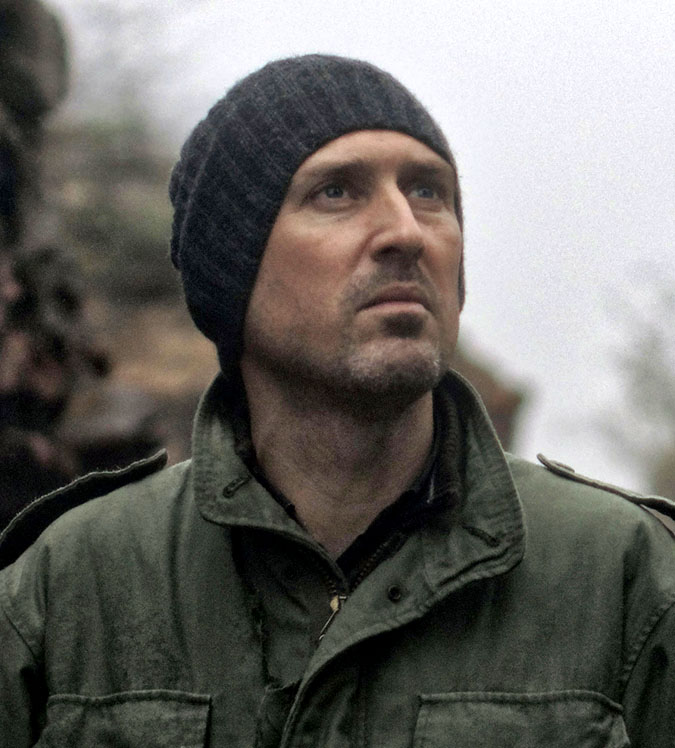




































































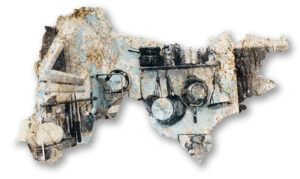



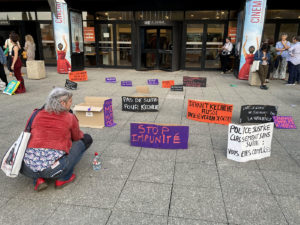



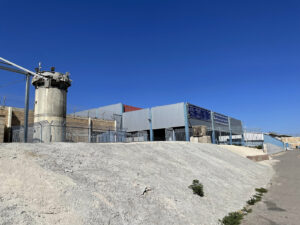






























What an anti-Israel article… E. G. Despite the fact that the pager operation was a highly focused one targeting Hamas operatives, the article makes it sound like it was civilians having been hurt. It also begins with this example which is irrelevant to the rest of the story, supposedly about surveillance technology but actually blaming Israel for its propagation – another mistaken attribution.